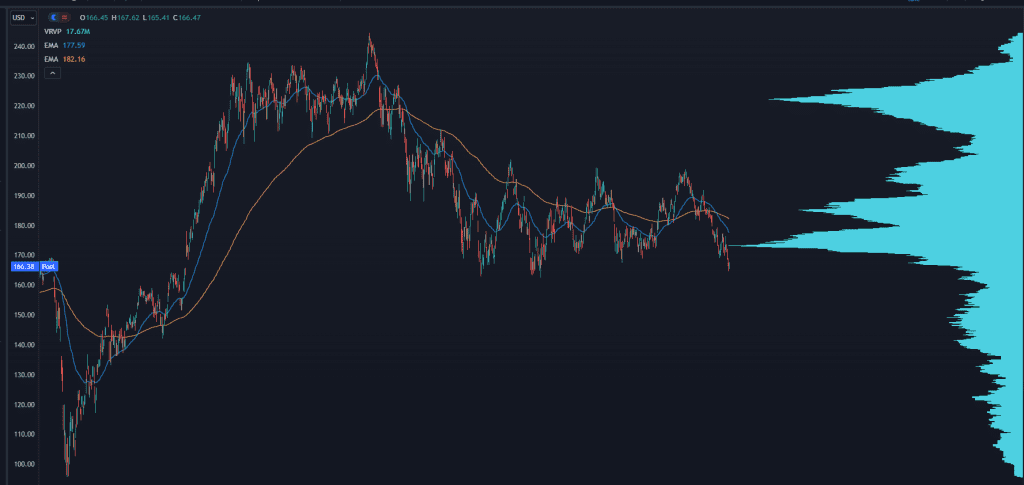
Staking a Claim in the “Amazon of Energy”
The Russell 2000 index (ticker IWM) is trading near the lows of 2022.
That’s right — while megacap tech stocks are propping up the S&P and Nasdaq, the rest of the market is still in a nasty bear market.
It’s possible this level holds, or we see a small undercut… or the entire thing falls apart.
Because it’s tough to be a small company right now. Regional banks are pulling back, debt costs are through the roof, and institutional capital is crowding the top tech stocks.
But don’t call it a bear market… call it a “build” market.
Because there are some quality companies, with competent operators, who are one catalyst or expanding market away from drastically increasing their valuation.
These companies have zero to low debt loads, built up their war chest in 2021, and are ready to execute.
That means even if the market takes a dive, I’ve got a shopping list of names I think will scoop up market share while other firms go under.
From my experience in the markets, some of these companies reach out to me to see if I “like the stock.”
I just finished up a call with the VP at a small tech firm. They’ve developed software that allows companies to bridge their data into AI technology.
That means instead of facing hundreds of man-hours and a full year’s development, they can have their systems up and running within three months.
They’ve built out for the Department of Defense, major accounting firms, energy companies… It’s an incredible spectrum of opportunity.
And they get results.
One case study they showed me was a company that found $30 million of cash that was tucked away in one of their accounts receivable programs.
This company’s valuation is under $20M, and if they hit their benchmarks, then it’s a steal of a stock.
That’s all I can reveal right now about this… but if you like setups like this, there’s another company I got a “first look” at earlier this year.
It’s in the energy space, and it’s looking to change the structure of how energy companies operate.
In a traditional oil company, you use debt financing to acquire oil wells, and for equity investors you pay out a dividend.
Well, with rates at 5%, that makes this untenable for many smaller energy plays.
This oil company instead is going to use straight equity financing to buy wells – and instead of paying out a dividend, they plow all that money back into buying more wells.
They will try their best not to turn a profit, and just grow the assets.
Sound familiar? It’s the Amazon business model, applied to the oil markets.
I was fortunate enough to sit down with the CEO of the company and hear what he had to say.
I’ll be sharing my insights, interviews, and analysis with my Insider Report clients – click here to learn more about the research we do there and how you can get involved.
Original Post Can be Found Here